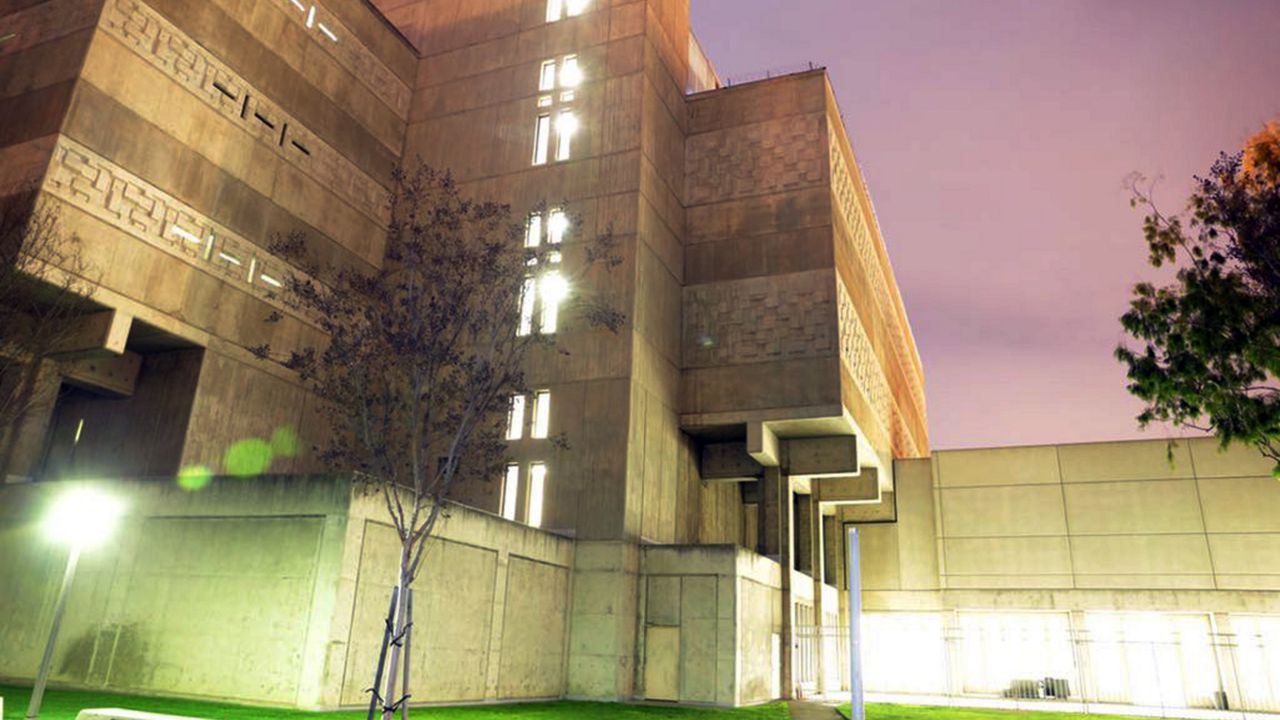SANTA ANA, Calif. (CNS) — Orange County Sheriff Don Barnes said Wednesday he would respond by Thursday's deadline to a court-ordered plan to halve the population of his jails to better handle physical distancing during the COVID- 19 pandemic.
Speaking during his regular monthly briefing, Barnes said that he would "move forward" with filing a "plan on the impacts of (inmate) releases on the public."
The sheriff said he would try to explain in the plan ordered by Orange County Superior Court Judge Peter J. Wilson the "significant issues" he has with reducing the population in the jails by 50%, and disputed criticism "that we have not had a strategy or plan" to manage coronavirus in the jails.
"That is not true," he said. "Since the beginning of COVID-19 in March of this year, we've always had a plan."
Corene Kendrick, an attorney for the American Civil Liberties Union, which brought the lawsuit to decrease the jail population, said, "We are heartened to hear that Sheriff Barnes will obey the Superior Court's order that he submit his plan tomorrow regarding how he can safely reduce the Orange County Jail's population to the 50% density levels that his medical director recommended over eight months ago."
"We hope that he will offer a thoughtful, detailed, evidence-based proposal rather than his past refusals to acknowledge the need to increase social distancing within the jails to abate the spread of the virus among the people who work and live in the facility and out into the community," she said.
An appellate court panel on Tuesday rejected Barnes' request to suspend Wilson's order. But the county and ACLU will submit more written arguments in advance of a Jan. 8 hearing before Wilson on how to implement the depopulation of the jails by half.
Barnes defended his coronavirus response, saying he has provided personal protective equipment to his staff and to inmates, including face coverings, and has promoted good hygiene and cleaning in the jails. The sheriff also noted how he stopped community visits with inmates as one measure to curb the spread of coronavirus.
Barnes noted he has already released 1,471 inmates to reduce the population in custody. Of those, 183 were declared "medically vulnerable," he said, insisting that "everybody who I can release has been released from my jails."
Releasing more inmates will present a danger to the community, Barnes said.
"Those who remain in jail present significant risk of heinous crimes or present a risk to the public if I release them back into the community," he said.
The sheriff maintained that he can manage coronavirus in his jails.
"We take temperatures of all personnel, and we have a very robust quarantine environment which has proven to work very well," Barnes said. "We have proven through our best practices that we can whittle that number (of infected) down."
As of Wednesday, 1,229 inmates in the county's jails are infected with COVID-19. Officials are awaiting the results of 179 tests.
Sheriff's officials had reduced the number of infected down to zero by the beginning of December, but then another outbreak occurred this month, Barnes said.
The sheriff said the number of infected inmates currently "appears much higher because we're testing every inmate in our care. The vast majority of those inmates are asymptomatic and have no symptoms of being ill."
Two inmates are hospitalized with "minor symptoms," Barnes said.
Barnes acknowledged that inmate Eddie Lee Anderson, who had COVID-19, was the first in the county to die from coronavirus. But Barnes noted that Anderson, who was accused of raping and strangling a woman in 1976, would not have been released under Wilson's order.
"He did have underlying health conditions," Barnes said of Anderson. "This individual was housed in an individual cell by himself."
The sheriff said Anderson's case, in which he was isolated, shows "it is not an absolute panacea to the risk of COVID-19. It is spreading rapidly through the community."
Attorney Richard Herman, who has represented many inmates in federal lawsuits against the county regarding the jails, said he has been receiving many calls from prisoners and their families about conditions in custody.
"The conditions in the jail are deteriorating," Herman said. "It's just a disaster. It's human misery."
Herman said the inmates are "basically in lockdown. They basically have 15 minutes a day to shower or make phone calls."
Sheriff's authorities have suspended hot meals and the inmates "get three cold meals a day," Herman said.



